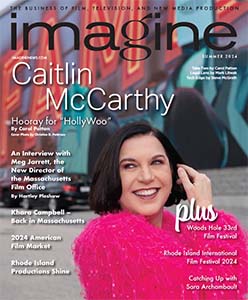“It’s a very hard business…you’re failing all the time as a screenwriter. The odds of anything getting liked are so small, and to get it made, they’re even smaller. Even a wonderful script that everyone loves won’t get made for all kinds of reasons. Even if it gets made, they may screw it up in making or marketing it, and it may flop. You are always being criticized and rejected. And yet, if you don’t remain vulnerable to that, you’re hurting yourself. Those who can harden their hearts to it and say, “To hell with them, I don’t care what they say, I know I’m right” can become arrogant and lack the openness that maybe they don’t have all the answers, maybe they’re not doing such a great job and the criticism is correct.”
Screenwriting is the second stage of production. After months, and oftentimes, years of thought and contemplation, the screenwriter finally sits down and gets to the second stage of production; getting their vision into screenplay format.
After numerous drafts, the moment of truth arrives. Through networking, or through an agent, the writer engages the third stage of production; getting that work before someone who can package their project, secure financing and attach stars. But almost without exception, there is a pitch meeting. For some, this crucial step is viewed as a make or break moment. And oftentimes, it becomes that.
The pitch meeting is a threshold crossing. It is the moment when the vision of having your film made crosses the threshold from being a lifelong dream, to that place where the dream becomes reality.
Most of my clients who have had this experience describe it as being “surreal”, “dreamlike” or “intimidating”. I have never sat in on a pitch that has gone the way the screenwriter has envisioned beforehand. Usually, unanticipated curveballs that the screenwriter has not anticipated come flying out of nowhere…
Producers are busy people. Usually, if the Producer has heard the logline beforehand and is intrigued, the meeting will begin with small talk that has nothing to do with Hollywood. They will ask you about things that have nothing to do with your writing. Also, they will tell you things about themselves that have nothing to do with business. This is a feeling out process, and it has a purpose. Regardless of how you pitch, or what is on the page, they are trying to answer, internally, a single question that will determine whether they move forward with your project, or not. And that question is: “Can I picture myself spending the better part of the next year in meetings, at lunches and dinners, and travelling in cars, with this screenwriter?” The small talk is not designed to throw you off. Its purpose is to expose the answer to those questions.
Another curve ball is the lack of small talk before the pitch, which is another kind of proverbial windup. In this instance, the Producer is either extremely busy and has, through some third person, taken on your request for a pitch meeting as a favor, or for a variety of reasons has a lot on their plate. Either way, they take a shoot from the hip approach. They might begin by telling you: “Okay. Go.” Just that short and direct, they want you to begin.
This approach, while not ideal, presents an opportunity. In past columns, I have written about the importance of crafting a great logline. This is where you put that logline to the test. In this example, the first minute of your pitch is where you must floor the Producer with the uniqueness of your story. You will feel something click inside of you once you have accomplished this goal. The Producer will begin to ask questions. Don’t stammer. Be polite. Once you have answered the question, pick up the pitch from the point where you took the pause to answer the question, and then gracefully move forward.
Always enter the pitch meeting with the mindset that your pitch could be interrupted at any point, by assistants, phone calls, text messages, etc. Expect these things and remain composed. Follow through to the end of your pitch.
In the former example, where the Producer is welcoming, jovial, and engaging, the process may differ. Once you have had the ten or fifteen minute “bonding time” with the Producer before the pitch, you may find that you actually have a more difficult time pitching your project. Because you have perceived that the Producer is interested in you, and possibly granted you some limited access into their personal world, an interesting dynamic evolves: The fear that this superficial bonding may be dealt a fatal blow if your story is rejected. This instinct is natural. Do not cave into it. By understanding that the pre-pitch small talk takes place for no other reason than to determine whether or not the Producer will want to work with you for an extended period, you will be able to soldier on during your pitch.
Do prepare beforehand. Never enter a pitch meeting without knowing the universe of every plot-point, gap, character and event in your story.
-Rehearse. Use a video camera to practice your pitch. Have a friend or loved one help you. They can interrupt you with questions, or try to throw you. Observe your pitch on video and then be objective about where the pitch is lacking.
-Identify the macro-beats and story points, and then describe them. Use only present tense verbs during your pitch. The desired effect will be that the Producer will see what you are describing as you are describing it. Example: “Michael Corleone sits at the table with Solozzo and McClusky”, as opposed to “Michael Corleone is sitting”. Your goal is to paint pictures in the Producer’s mind as you are speaking.
-Keep going. If you are nervous, remember that many successful screenwriters were once nervous wrecks, too.
-Always protect yourself. Regardless of how or when the opportunity to pitch to a Producer presents itself to you, be sure to register your work with the Writer’s Guild of America first. A producer will usually sign a document, produced by you, that states the title, logline, and main thrust of your project. If they will not, then walk away. It is best to fax the document ahead to the assistant to the Producer. This has become standard practice in Hollywood. Don’t be afraid to take this step, as idea theft happens all the time.
Most importantly, your writing must be stellar. You can pitch your fanny off. But if your craft is less than excellent, it will not matter. They will not take the time to coach you and correct your imperfect screenplay. If you do not pitch well, but present a well-crafted, one of a kind gem, and are not obnoxious, you will find yourself with a small chip in the big proverbial crap game.
Be confident. Be passionate. Be enthusiastic. You have travelled very far just to reach this part of your journey. Follow through and keep going.
Peter Fox has read and covered Screenplays at Universal, Paramount, Sony TriStar and MGM. He has conducted The Blockbuster Scriptwriting Workshops (formerly The Inside Track Workshops for Story and Cinematic Structure) since 2001. He has interviewed numerous Directors, Producers and Hollywood stars for several publications, and holds a M.F.A in Screenwriting from The American Film Institute.




